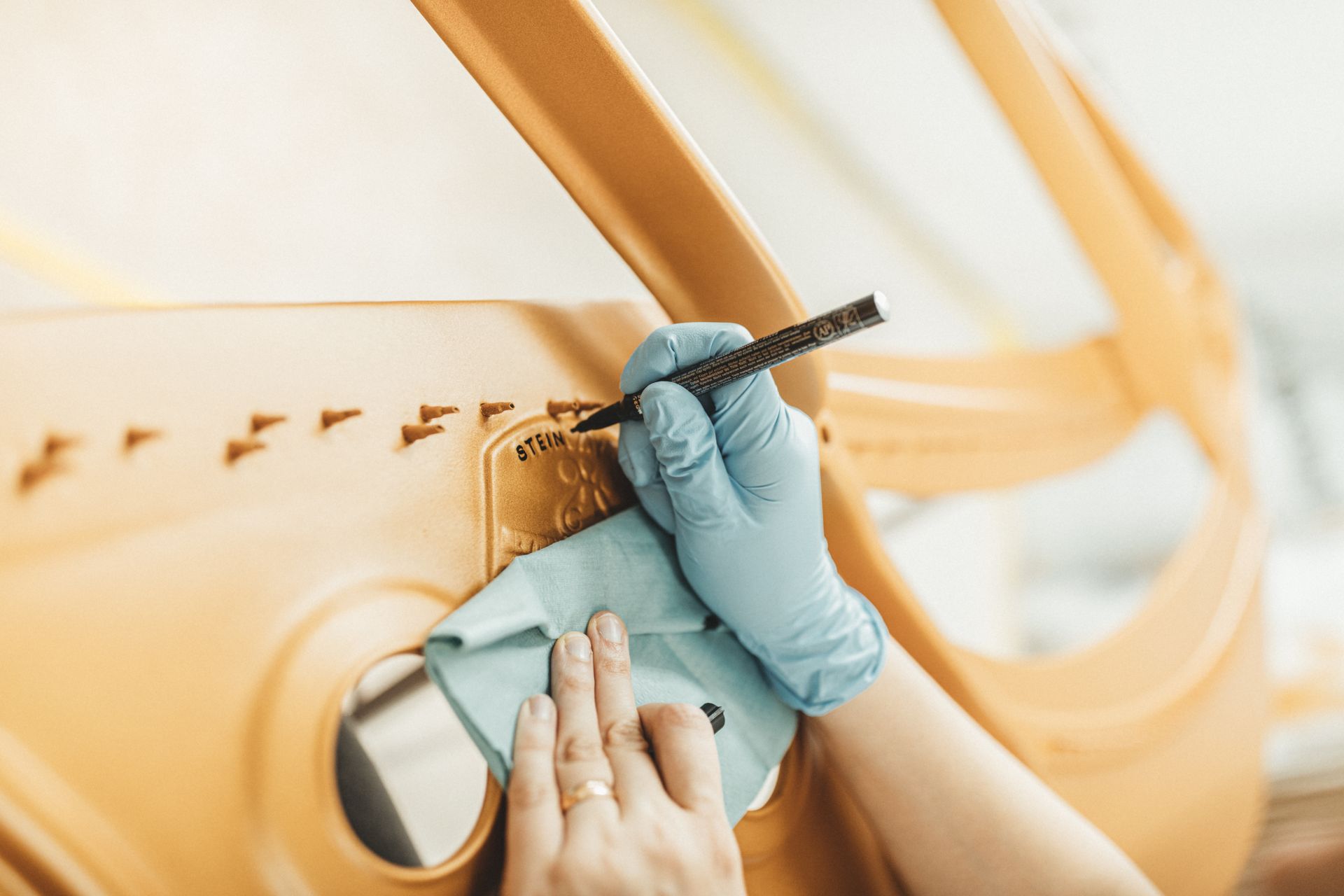Repairs
We carry out a wide variety of repairs both at the customer's premises and in our workshop. We are very well networked with a wide variety of piano makers at home and abroad. This diversity results in the best solutions for you.
Thanks to these networks, we can also be proud of some specialities in repairs that we are the only ones in Switzerland to offer:
Soundboard optimisation
Using very fine sand and an amplifier, we can measure the vibration of the soundboard. Depending on how the sand is distributed on the soundboard, we can recognise where the soundboard can vibrate freely and where work is needed. We then use a special measuring device to measure the thickness of the floor over the entire vibrating area and sand down the soundboard in a targeted manner. With this additional work step, we achieve marvellous results and can tease out hidden sounds from the instruments.
Pulling’ the strings
If the back vibrates properly, the strings must of course also sound right. The blank cover (i.e. all strings without copper wire) is supplied rolled up by the manufacturer and the material sometimes spends years in this condition. As a result, the string rolls up again and again during processing and we ‘force’ it back into a straight state when we install it in the instrument. This often results in impure sounds, especially in the middle region, where the tension is lower and the strings are not stretched as tightly.
We have a solution to this problem: with a ‘stretching machine’, the string wire is pulled straight before it is installed in the instrument and can thus be made to sound without problems and unpleasant overtones.
Hammers Piano Sigrist
Finally, we are proud to be able to install our own hammers in the instruments. The felt quality was chosen by us personally according to our experience and delivered to us directly from the manufacturer. This means we know exactly what we are installing in the instruments and how the hammers react to our voicing work. Our hammers can be recognised not only by their beautiful, dynamic sound, but also by the small Piano Sigrist lettering and the bordeaux red underfelt.
With these unique features, we also want to tickle the finishing touches out of the instruments!

FAQ
We give a 2-year guarantee on mechanical functions. The prerequisite is correct handling and the right location of the instrument.
Approx. 20 years, then the strings should be replaced. Exceptions are made in very humid locations or accidents with liquids, etc.
There are two reasons why hammer heads have to be replaced. Either they are so heavily played that the felt has hardened and the sound suffers (if necessary, this can also be corrected with voicing). Another possibility is that the strings have played heavily into the felt (deep grooves are created). On the one hand, this has an effect on the sound, but also on the axles that guide the hammer shaft. To avoid severe damage, the hammer heads must be replaced.
In principle, yes. However, on some models the space is too small and we cannot install the system afterwards. In any case, compromises have to be made for an instrument with a muting system installed later. So it is not to be compared with the brand-new instruments.
In addition to the annual tuning, the instrument should also be checked and reworked in regulation. This is usually done by the tuner during the tuning job.
However, after a few years, more extensive work may be required. The felts on the hammer heads become very worn over time and have to be sanded down or even replaced. The keys are also exposed to a lot of friction and, depending on use, need an overhaul every few years. As the strings are made of steel (and partly of copper), they start to oxidise over time and this has a bad effect on the sound. We therefore recommend replacing the strings after 20 years at the latest.
For small jobs, the technician can also repair the instrument at home. Simple regulation work, for example. For all major work, however, the instrument must be brought to the workshop – there we have enough space and all the tools at hand. This way, nothing can surprise us when we take a closer look at the instrument.
It is highly recommended to take the instrument to the workshop. Only a few jobs can be done at home. For many jobs, there is not enough space or equipment at home, or it would simply be too expensive to bring all the tools.
Because many repairs take several weeks, the travel costs for the technician would also be too expensive.
The duration of the repair depends on the work. For a major overhaul (new strings, complete overhaul of the action, treatment of the keys,…) at least one month must be expected.
With most repairs there are some idle times, because wood has to be dried or glue spots have to harden. Especially with new strings, the instrument needs some time until it can hold its tuning.




